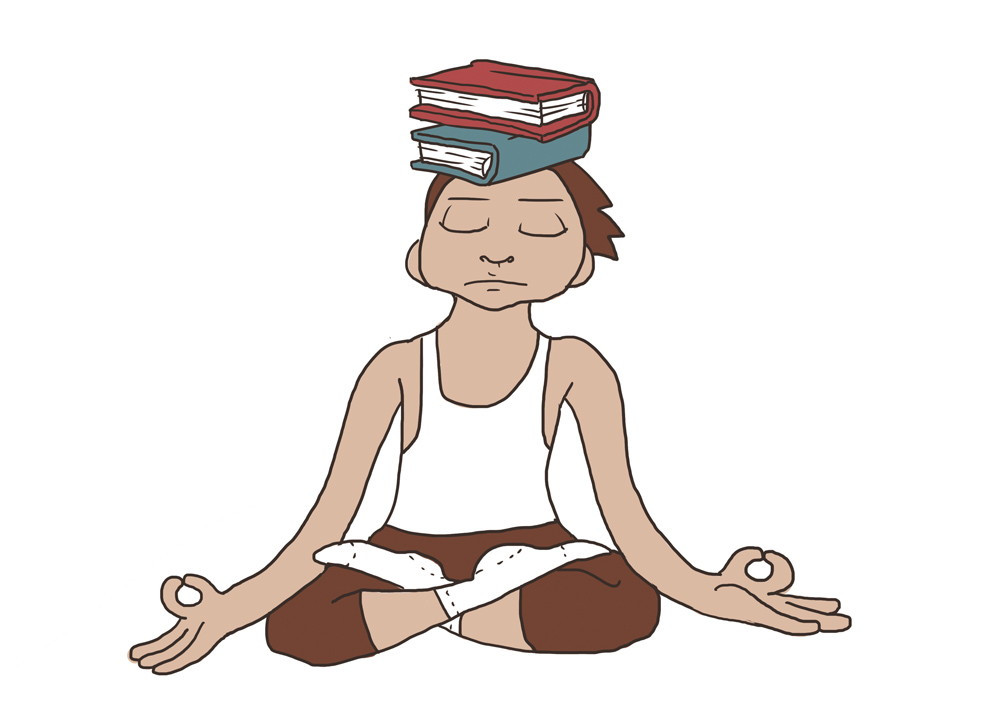Living in the now
On-campus meditation has real mental health benefits
This year has been a big one for mindfulness. The centuries-old principle of Buddhist practice, defined as “the intentional, accepting and nonjudgmental focus of one’s attention on the emotions, thoughts and sensations occurring in the present moment,” has been secularized and diversified in the 21st century.
JWT Worldwide, one of the world’s most influential marketing communications brands, listed mindfulness as one of the “10 Trends that will shape our world in 2014 and beyond,” and the Huffington Post declared 2014 “The Year of Mindful Living.”
On Oct. 15, the University of Winnipeg (U of W) began holding weekly mindfulness meditation sessions. Barbara Read, a coordinator in adult learner services and organizer of the events, says the sessions are free, and all students, faculty, staff and community members are invited to attend.
“It’s done from a secular point of view,” Read says. “We might do a reading from [Buddhist monk] Thích Nhat Hanh, for example, but we take inspiration from multiple sources. We keep it very
religion-neutral.”
Mindfulness meditation is more than a new-age spiritual trend. U of W psychology professor Michael McIntyre, whose course Mind, Brain, and Body focuses on “how the brain and the body are influenced by psychological phenomena,” says there’s hard clinical evidence that mindfulness meditation has medical benefits.
A study by neuroscientists Richard Davidson and Jon Kabat-Zinn evaluating mindfulness-based stress reduction programs showed the practice reduced stress and negative emotion.
“They measured the left-to-right ratio of brain activity at the beginning and end of the experiment,” McIntyre says. “They found that people practicing the meditation changed their brain activity in favour of greater left-hemisphere activity. So their brains were more prepared to respond positively to life’s experiences.”
McIntyre says the practice also increased immuno-efficiency with practitioners of meditation showing an increase in receptiveness to vaccines and creating antibodies.
Kurt Schwarz, a spiritual health specialist at Health Sciences Centre, says mindfulness meditation is an integral and essential part of hospital’s approach to mental health. Mindfulness meditation is part of treatment programs for various mood and anxiety disorders including clinical depression, bipolar disorder, and obsessive compulsive disorder.
“It’s helpful to patients for self-soothing and self-regulating,” Schwarz says. “It gives one awareness to recognize what’s happening in the present moment, to ground and center yourself.
“I’ve also been involved in teaching our staff the principles of mindfulness. There are many benefits, from a staff perspective. You’re more attentive and tuned to your surroundings.”
Schwarz says he’s confident the practice can be beneficial for university students.
“I have a son in university. I didn’t push him, but he’s started to explore mindfulness himself,” Schwarz says. “It’s helped him develop a direction for his studies. I’d really encourage young people to explore the benefits.”
McIntyre agrees. “It’s what practicing psychologists call evidence-based. It’s been broadly tested,” he says. “We can proceed with confidence that it’s been subjected to rigorous clinical research. That’s why I’m comfortable using it clinically.”
Free mindfulness meditation sessions are held every Wednesday from 12:30-1:00 pm at the University of Winnipeg chapel.
Published in Volume 69, Number 8 of The Uniter (October 22, 2014)








